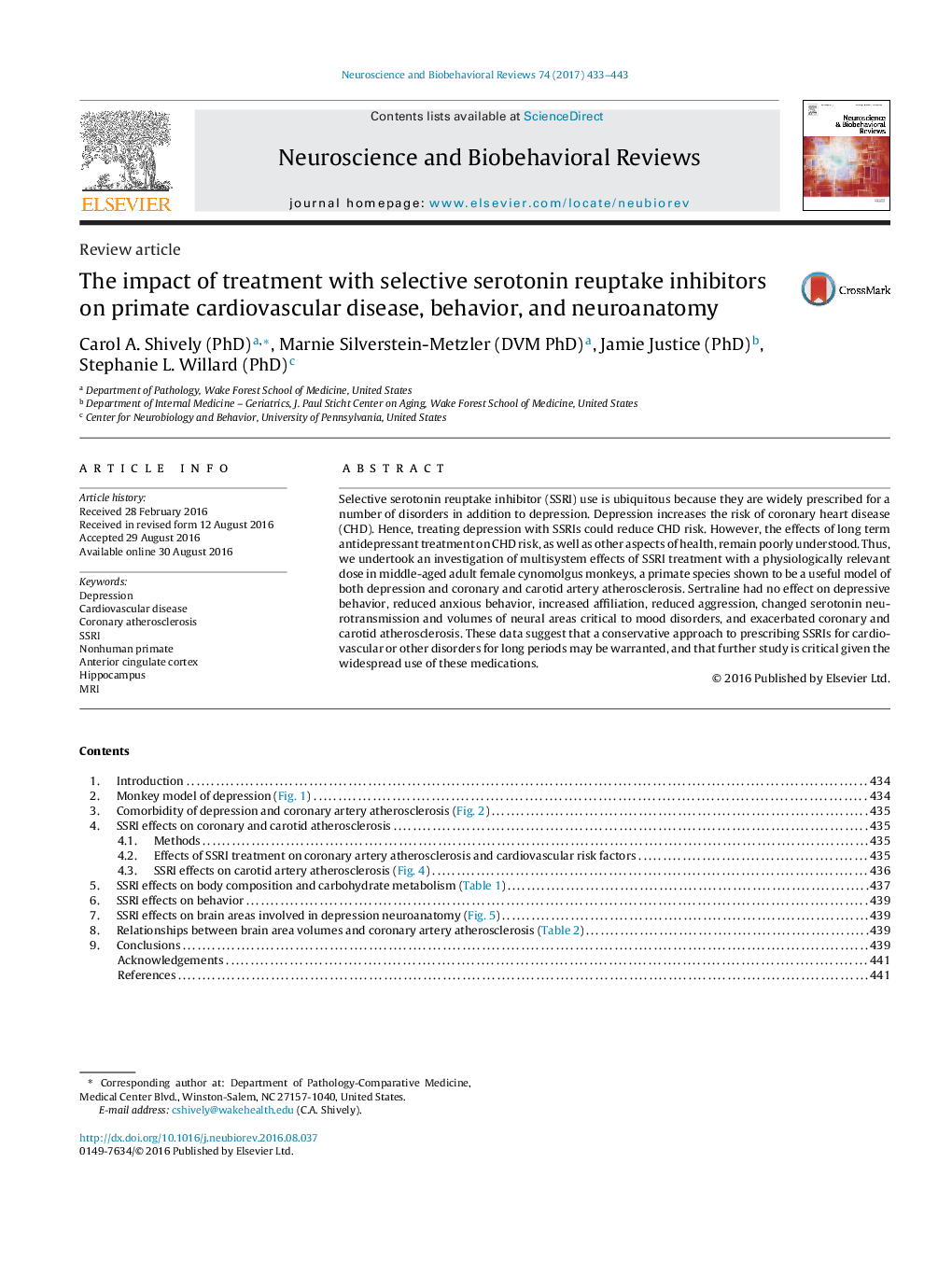| Article ID | Journal | Published Year | Pages | File Type |
|---|---|---|---|---|
| 5043630 | Neuroscience & Biobehavioral Reviews | 2017 | 11 Pages |
â¢It's thought that as depression increases CHD risk, SSRI treatment may reduce CHD.â¢SSRIs exacerbate coronary and carotid atherosclerosis in female primates.â¢SSRIs alter depression neuroanatomy.â¢A conservative approach to prescribing SSRIs for CVD is warranted.
Selective serotonin reuptake inhibitor (SSRI) use is ubiquitous because they are widely prescribed for a number of disorders in addition to depression. Depression increases the risk of coronary heart disease (CHD). Hence, treating depression with SSRIs could reduce CHD risk. However, the effects of long term antidepressant treatment on CHD risk, as well as other aspects of health, remain poorly understood. Thus, we undertook an investigation of multisystem effects of SSRI treatment with a physiologically relevant dose in middle-aged adult female cynomolgus monkeys, a primate species shown to be a useful model of both depression and coronary and carotid artery atherosclerosis. Sertraline had no effect on depressive behavior, reduced anxious behavior, increased affiliation, reduced aggression, changed serotonin neurotransmission and volumes of neural areas critical to mood disorders, and exacerbated coronary and carotid atherosclerosis. These data suggest that a conservative approach to prescribing SSRIs for cardiovascular or other disorders for long periods may be warranted, and that further study is critical given the widespread use of these medications.
